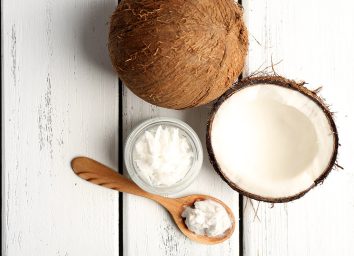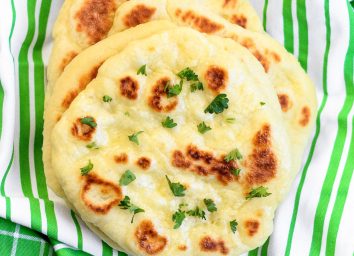10 Probiotic Foods You Should Never Eat
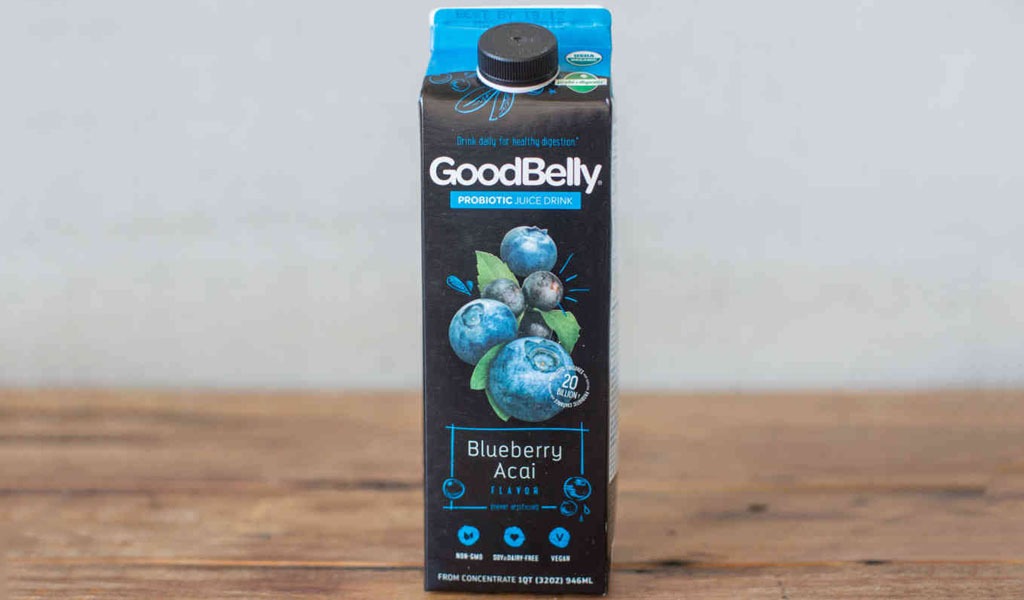
If you haven’t already heard, probiotic foods have officially beaten out bone broth for food trend of the year. To refresh your memory, probiotics are “live microorganisms which, when administered in adequate amounts, confer a health benefit on the host,” according to the World Health Organization. A few of those health benefits? Boosting your immune system, protecting your memory, and helping to regulate fat storage. Sounds like a wellness hole in one, if you ask us! There’s just one catch: we’re still not quite sure how they all work.
That ambiguity applies even more for food products that don’t naturally produce probiotics through fermentation; they only have them because a company adds the bacteria after processing. But even if we’re not sure how effective these beneficial bacteria are at healing our bellies (preliminary results are promising!), we do know which dietary factors can lead to an unhealthy gut (hence, why you’d be taking probiotics in the first place). One of the worst food foes? Sugar.
Multiple studies, such as research from Oregon State University, have found that high-sugar diets (which most Americans eat) are consistently associated with a high ratio of bad bacteria to good bacteria, which can result in health issues from weight gain to premature mental decline. Experts believe the problem stems from sugar being the primary source of fuel for the pathogenic bacteria, fungi, and yeast that can conquer and kill your beneficial bacteria.
You’re probably thinking, “As long as I reduce my sugar intake, and up my probiotic intake, I’ll be good to go!” And you should have been right! The only issue is that many of these supposedly beneficial probiotic foods with lab-grown strains added in are also packed full of the sugar that’s wrecking your gut in the first place. That’s why we’re here to help you weed out the ploys from the nutritional powerhouses. Be sure to steer clear of these probiotic gimmicks, and instead, stock up on one of the most trusted sources of beneficial belly bugs, Greek yogurt.
Tropicana Essentials Probiotics Strawberry Banana
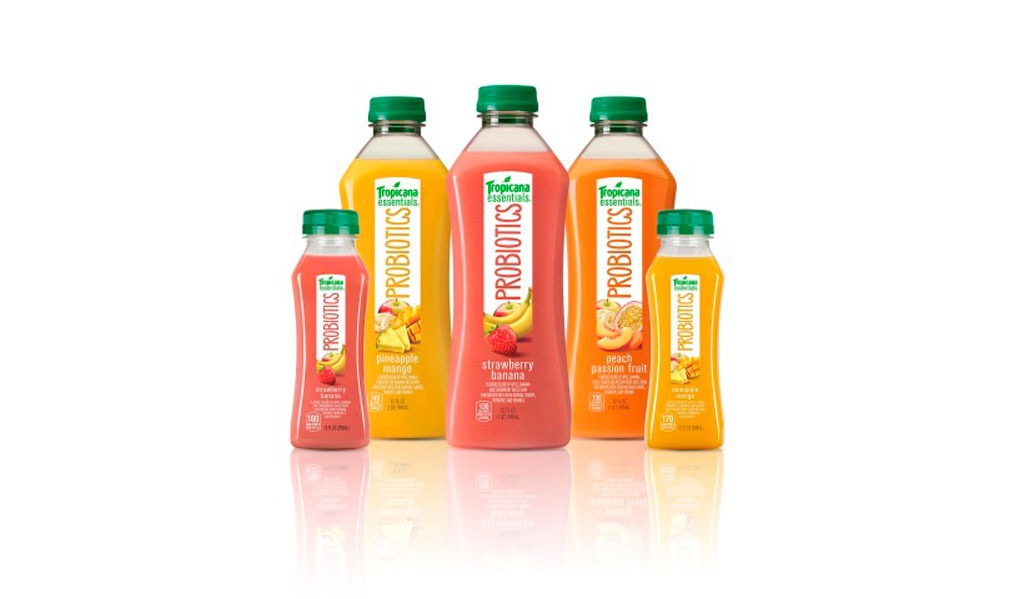
Per 8 fl oz: 130 calories, 0 g fat, 10 mg sodium, 31 g carbs (0 g fiber, 28 g sugar), <1 g protein
No amount of immune-boosting probiotic strain addition can cover up the fact that a single serving of Tropicana’s new Strawberry Banana juice has a staggering 28 grams of sugar. Sure, those grams aren’t from any added sources, but fruit sugar acts the same way as cane sugar in your body. And without any digestion-slowing fiber, healthy fats, or protein to ease its release into your bloodstream, you’re looking to get some distracting hunger pangs soon after you guzzle down a glass.
Sugar 2.0 + Probiotics
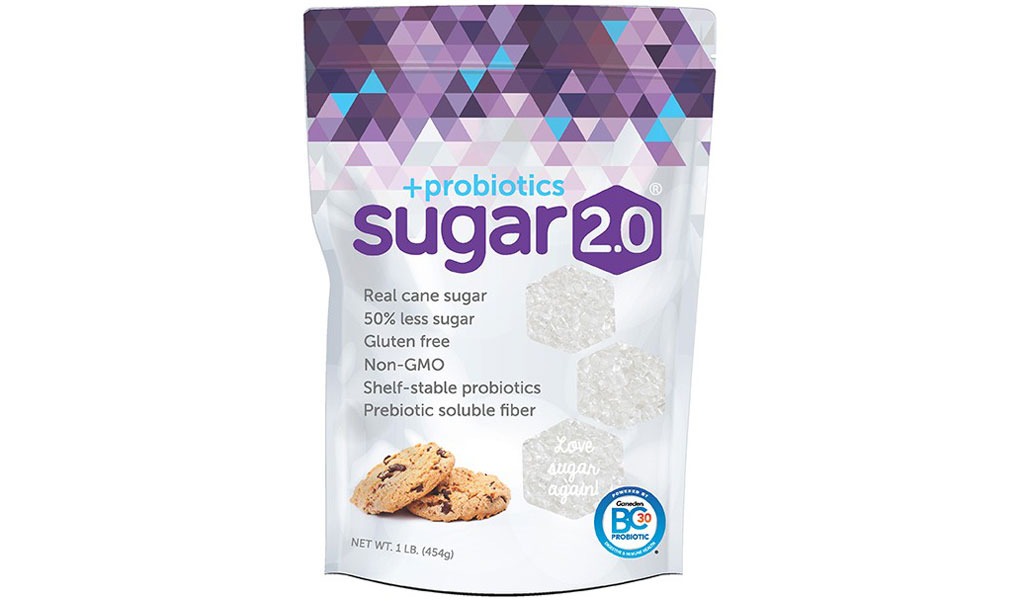
Per 1 tsp: 10 calories, 0 g fat, 0 mg sodium, 4 g carbs (2 g fiber, 2 g sugar), 0 g protein
This might be a great replacement for sugar in your morning tea or coffee, but it doesn’t make much sense to us that they’re pairing belly beneficial bacteria with the food source for the bad guys. It’s like drinking coffee while popping a sleeping pill—what’s the point?
Mariani Probiotic Prunes
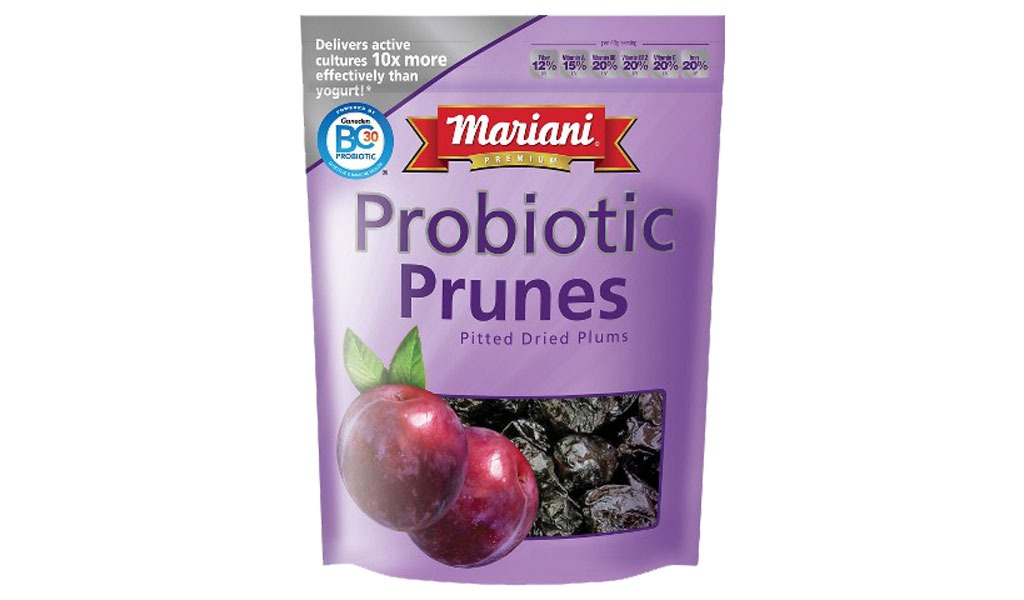
Per 5-6 prunes (40 g): 100 calories, 0 g fat (0 g saturated fat), 0 mg sodium, 23 g carbs (3 g fiber, 19 g sugar), 1 g protein
Dried fruit certainly sounds like a great idea—it’s got the word “fruit” in it!—but it’s also on our list of “healthy” habits that can make you gain weight. That’s because dried fruits are easier to overeat that their whole counterparts. Plus, they come with less of that tummy-filling water that helps keep you satiated as you munch.
Enjoy Life Brownie Mix
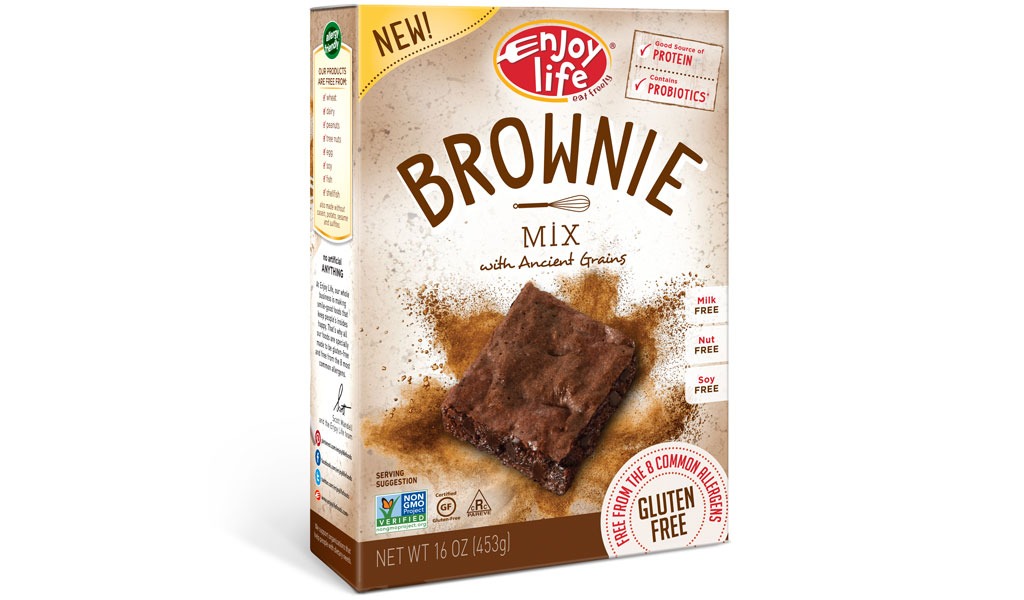
Per 3 tbsp mix (35 g): 130 calories, 2.5 g fat (1 g saturated fat), 120 mg sodium, 25 g carbs (2 g fiber, 17 g sugar), 6 g protein
These brownies certainly have a clean ingredient profile—but when it comes to improving gut health, a pattern of indulging in sugar-heavy desserts likely won’t help. If you need a better-for-you probiotic food that also doubles as dessert, go for low-sugar yogurt such as skyr and sweeten it with some cacao nibs and fresh berries.
Project Juice Greenbiotic
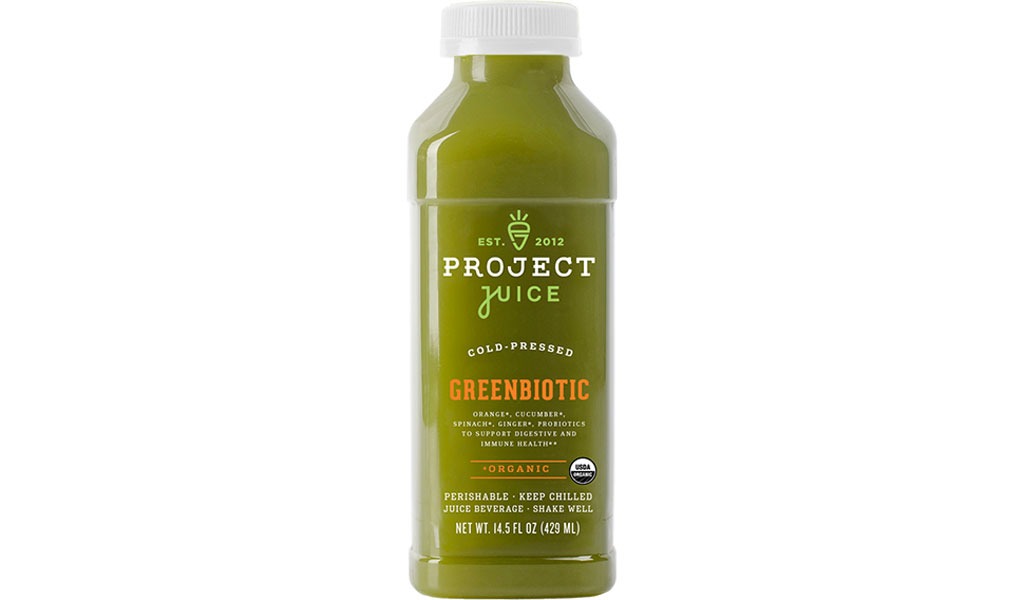
Per 14.5 fl oz: 160 calories, 1 g fat (0 g saturated fat), 35 mg sodium, 39 g carbs (0 g fiber, 29 g sugar), 3 g protein
Even though this cold-pressed juice is made with only organic oranges, cucumbers, spinach, ginger, and a strain of probiotics, the 14.5-ounce bottle contains a whopping 29 grams of sugar from the fruit. Pass!
Swanson GreenFoods Vegan Protein With Probiotics
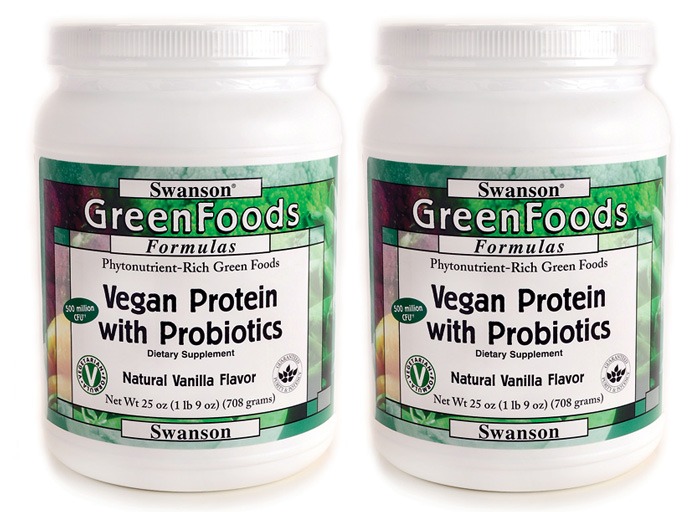
Per 3 scoops: 190 calories, 1 g fat (0 g saturated fat), 214 mg sodium, 26 g carbs (5 g fiber, 20 g sugar), 18 g protein
Nope, you’re not even in the clear with plant-based protein powders! Unfortunately, the makers behind this brown rice and hemp blend also packed in tons of brown rice syrup solids, which ups the sugar count to a whopping 20 grams in a standard serving. If you’re looking for a vegan protein powder with probiotics—but only 1 gram of sugar—check out Kashi’s GoLean Protein Powder.
Good Belly Probiotics Organic Blueberry Acai Drink
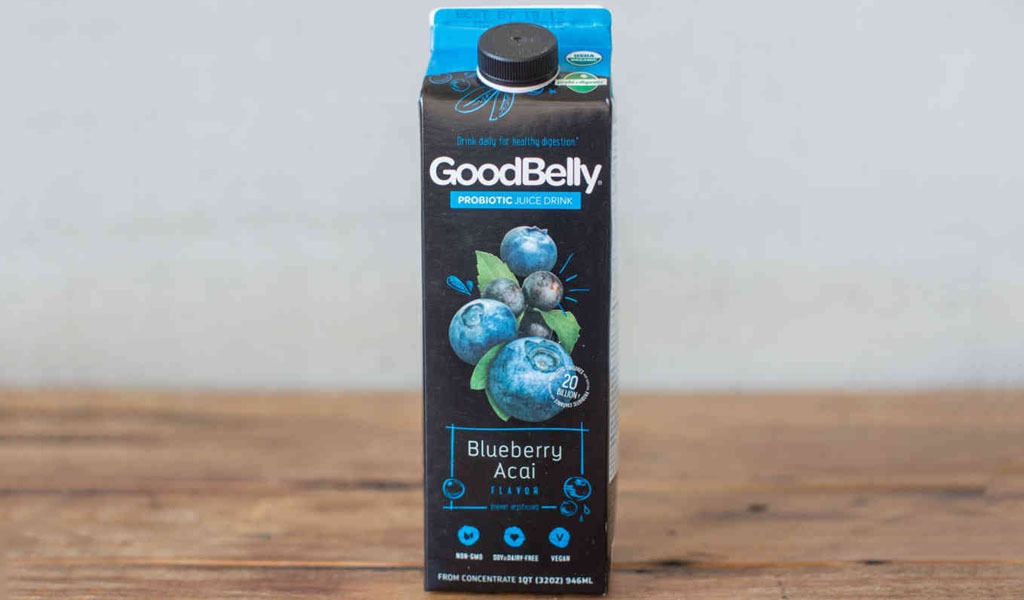
Per 8 fl oz: 120 calories, 0 g fat, 20 mg sodium, 29 g carbs (0 g fiber, 24 g sugar), <1 g protein
Right after water and concentrated pear juice, cane sugar finds its place on Good Belly’s ingredient list. It certainly makes sense it would be listed so high: there are 24 grams of the sweet stuff in one 8-ounce serving!
Brio Very Strawberry Ice Cream
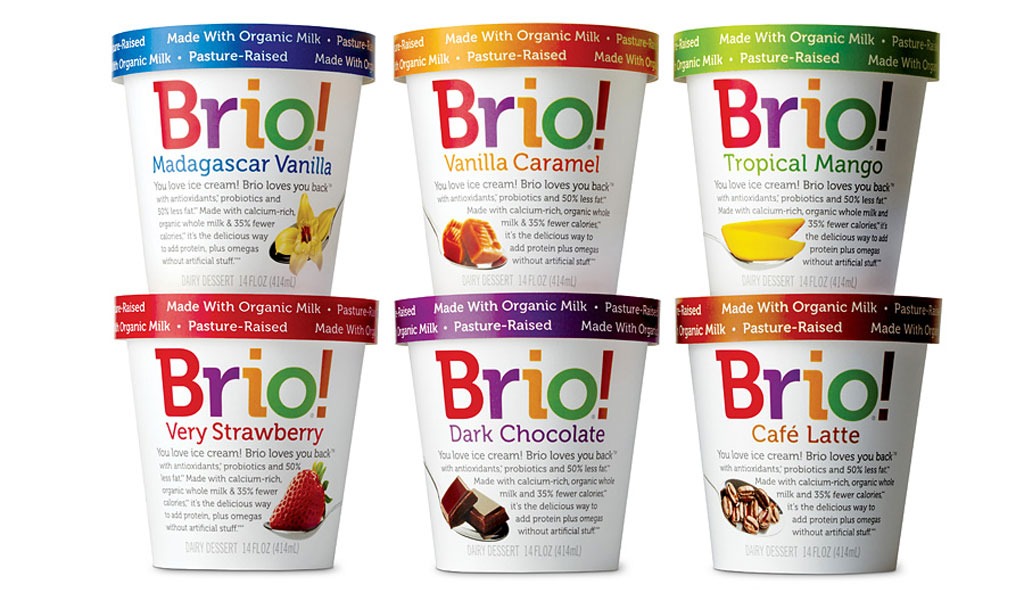
Per ½ cup serving: 150 calories, 6 g fat (2.5 g saturated fat), 45 mg sodium, 20 g carbs (2 g fiber, 16 g sugar), 5 g protein
Don’t fall for the fact that this ice cream is made from calcium-rich, pasture-raised, organic whole milk. Brio isn’t just filled with antioxidants and probiotics; it’s also filled with 16 grams of sugar per tiny half-cup serving! There are better probiotic foods to be had.
Little Duck Organics Tiny Gummies
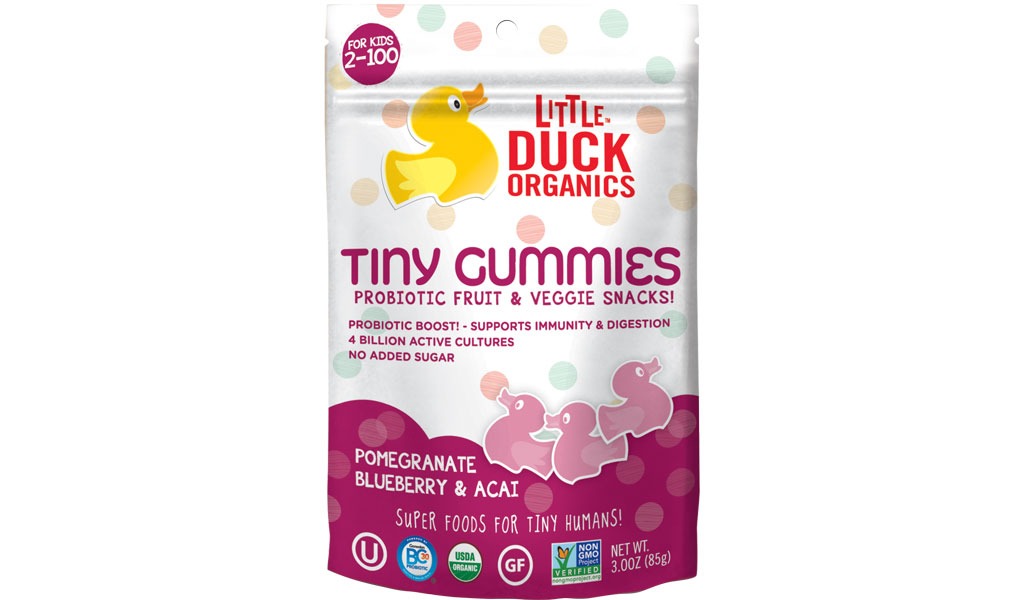
Per 1-⅓ tbsp (20 g): 67 calories, 0 g fat, 4 mg sodium, 16 g carbs (1 g fiber, 14 g sugar), 0 g protein
If you’re looking for fruit snacks for your little one, skip Little Duck’s Tiny Gummies. Even though they’re made without added sugars or preservatives and are all organic, your kid will still be consuming more health-harming sugar than belly-boosting probiotics.
Glutino Gluten-Free Breakfast Bars
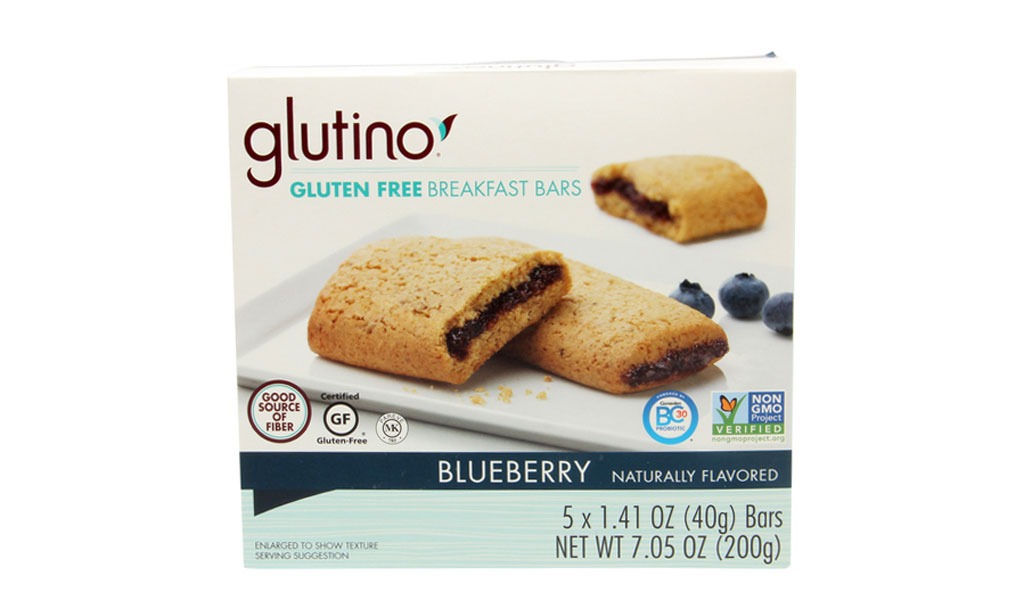
Per 1 bar: 140 calories, 2 g fat (0 g saturated fat), 45 mg sodium, 29 g carbs (3 g fiber, 14 g sugar), 2 g protein
Talk about health halos. Just because these bars are gluten-free and contain probiotics does not mean they’re good for you. Not only are they made with fructose—the type of sugar that’s been closely tied to insulin resistance, high cholesterol and triglycerides, and belly fat—they’re made with a lot of it: 14 grams.


